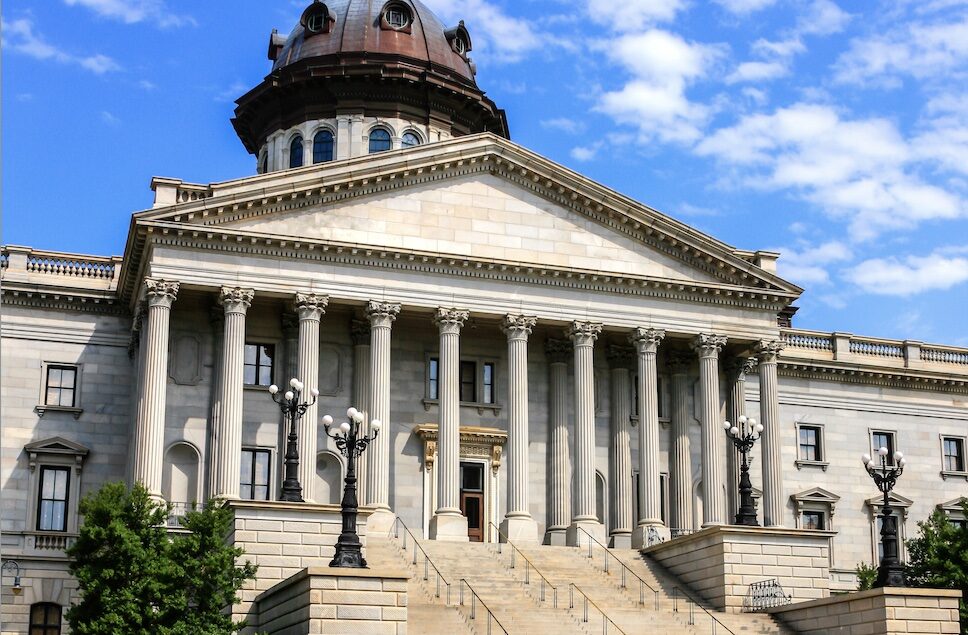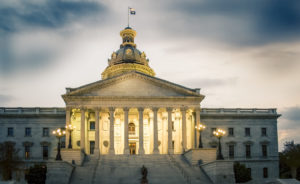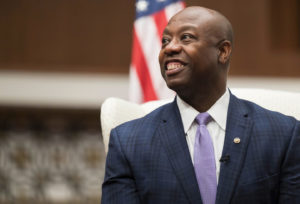South Carolina House approves universal school choice bill
The South Carolina House advanced a universal school choice bill despite a legal battle over the program’s constitutionality.
The House voted 69-32 on Wednesday in favor of HB 5164, which has…

The South Carolina House advanced a universal school choice bill despite a legal battle over the program’s constitutionality.
The House voted 69-32 on Wednesday in favor of HB 5164, which has 31 Republican co-sponsors. The bill would expand the state’s education savings account (ESA) program to have universal eligibility.
Currently, only low-income students are eligible, and the program is capped at 15,000 participants.
School choice advocates celebrated HB 5164’s progress.
“This bill would make South Carolina the 12th state to pass UNIVERSAL SCHOOL CHOICE,” Corey DeAngelis wrote on social media.
Alabama already became the eleventh state to do so earlier this year. South Carolina is competing with Georgia and Louisiana to be the next.
South Carolina Superintendent of Education Ellen Weaver also praised the House, calling the bill “a win for students and families.”
“The South Carolina House of Representatives just took a HUGE step forward by passing universal school choice,” Weaver wrote. “Thank you to [House Speaker Murrell Smith], [Education committee] Chairlady [Shannon Erickson], and the rest of the House!”
School choice has faced a rocky road in South Carolina, in part due to the state constitution’s Blaine Amendment – a relic of the 19th-century anti-immigrant and anti-Catholic sentiments.
Inspired by politician James G. Blaine, these amendments restrict public education funds from leaving the government-run school system.
South Carolina’s reads:
“No money shall be paid from public funds nor shall the credit of the State or any of its political subdivisions be used for the direct benefit of any religious or other private educational institution” (emphasis added).
Opponents of school choice are currently suing the state’s ESA program, saying it violates the Blaine Amendment.
In 2020, they successfully blocked Gov. Henry McMaster from using COVID relief funds to benefit private school students.
But this time around, education freedom advocates are optimistic the courts will side with them.
“We [wouldn’t] deny that private schools are a part of the equation, but what we would say is the direct beneficiaries of this program are the students themselves,” Bryce Fiedler, senior policy analyst for South Carolina Policy Council, previously told The Lion. “The person determining where that money goes is not the state. The state is basically setting this money aside and is giving parents the power to determine where that goes.”
A similar argument was made before the South Carolina Supreme Court earlier this month.
“The Rosetta Stone of this case is to figure out who the direct beneficiary is,” said Jim Gilliam, attorney for House Speaker Smith.
Although the ongoing lawsuit didn’t deter the House from passing HB 5164, state senators may be more hesitant.
“Before you look at expanding it, you need to make sure that this one’s going to work, and you also need to see how does the public respond to this new program,” Senate Majority Leader Shane Massey, R-Edgefield, said Wednesday. “But I think if it is successful, you probably would see an expansion of it.”


